[fusion_builder_container hundred_percent=”no” equal_height_columns=”no” menu_anchor=”” hide_on_mobile=”small-visibility,medium-visibility,large-visibility” class=”” id=”” background_color=”” background_image=”” background_position=”center center” background_repeat=”no-repeat” fade=”no” background_parallax=”none” parallax_speed=”0.3″ video_mp4=”” video_webm=”” video_ogv=”” video_url=”” video_aspect_ratio=”16:9″ video_loop=”yes” video_mute=”yes” overlay_color=”” overlay_opacity=”0.5″ video_preview_image=”” border_size=”” border_color=”” border_style=”solid” padding_top=”” padding_bottom=”” padding_left=”” padding_right=””][fusion_builder_row][fusion_builder_column type=”1_1″ layout=”1_1″ background_position=”left top” background_color=”” border_size=”” border_color=”” border_style=”solid” border_position=”all” spacing=”yes” background_image=”” background_repeat=”no-repeat” padding=”” margin_top=”0px” margin_bottom=”0px” class=”” id=”” animation_type=”” animation_speed=”0.3″ animation_direction=”left” hide_on_mobile=”small-visibility,medium-visibility,large-visibility” center_content=”no” last=”no” min_height=”” hover_type=”none” link=””][fusion_text] Dengue is a viral vector-transmitted disease which is a major public health concern as one of the leading causes of death and illness in many tropical and subtropical regions worldwide. Alarmingly, more than one-third of the world’s population lives in areas at risk for the transmission of dengue which is via the bite of two infectious mosquito species, namely Aedes aegypti and Aedes albopictus. Basically, dengue exists in two forms of the classic Dengue Fever (DF) and Dengue Haemorrhagic Fever (DHF) which may evolve toward a severe form known as Dengue Shock Syndrome (DSS). For dengue control programmes to be effective, information on the nature and dynamics of the occurrence and transmission of dengue infection is essential. However, detection of dengue cases has been challenging due to the asymptomatic nature of dengue infections presenting as fevers of unknown causes. Consequently, mathematical modelling of dengue has been emerging to facilitate better understanding of the pattern of disease transmission and simulate the impact of control strategies.
Featuring this, the Institute for Research, Development, and Innovation (IRDI) from the International Medical University (IMU) and University of Strathclyde, UK jointly organised a Technical Seminar and Workshop on Dengue Modelling and Epidemiology Research on 27-28 August 2018 at IMU Bukit Jalil campus.
The first day event comprised of three lectures delivered by three speakers followed by round table discussions on research collaborations, funding opportunities, and strategies to translate advances in dengue modelling into efforts to promote public health in both the clinical and population settings. Meanwhile, the one-day workshop on the second day focused on using the R software to develop ordinary differential equation models for biological populations. 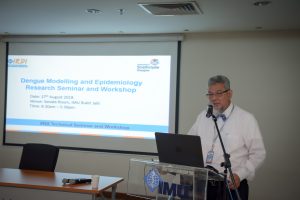
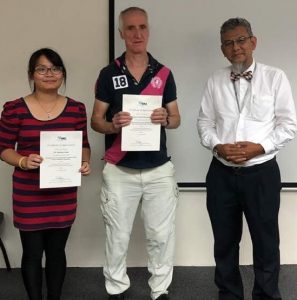
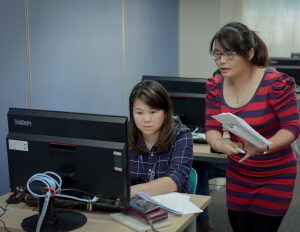 Keynote speakers for this event were: [/fusion_text][fusion_table]
Keynote speakers for this event were: [/fusion_text][fusion_table]
| Dr Mohd Helmi Zakaria | Chief Executive Officer of Asia Pacific Artificial Intelligence in Medical Epidemiology (AIME) Inc |
|---|---|
| Dr Balvinder Singh Gill | Head of Information and Documentation Sector of the Disease Control Division, Ministry of Health Malaysia |
| Prof David Greenhalgh | Department of Mathematics and Statistics of University of Strathclyde, UK |
[/fusion_table][fusion_text] 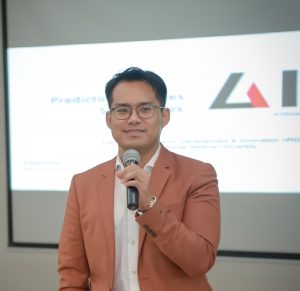
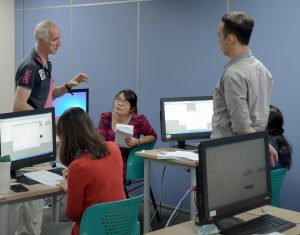
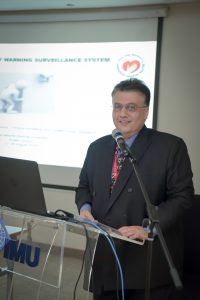 Dr Mohd Helmi Zakaria kick-started the lectures by deliberating on using Artificial Intelligence (AI) and Machine Learning for dengue surveillance, prediction, and management of the infection. Subsequently, Dr Balvinder Singh Gill gave an interesting talk on employing early warning systems which are systems to receive timely and relevant information prior to the disease in order to make informed decisions and take action. Last but not least, Prof David Greenhalgh narrated on the optimal vaccination age for dengue in Brazil with a tetravalent dengue vaccine by using mathematical modelling.
Dr Mohd Helmi Zakaria kick-started the lectures by deliberating on using Artificial Intelligence (AI) and Machine Learning for dengue surveillance, prediction, and management of the infection. Subsequently, Dr Balvinder Singh Gill gave an interesting talk on employing early warning systems which are systems to receive timely and relevant information prior to the disease in order to make informed decisions and take action. Last but not least, Prof David Greenhalgh narrated on the optimal vaccination age for dengue in Brazil with a tetravalent dengue vaccine by using mathematical modelling.
The primary goal of this Technical Seminar and Workshop was to promote the development and application of translational epidemiology related to the prediction and prevention of dengue viral infection. It was also hoped that at the end of the programme, the participants should be able to have better understanding of the current state of dengue transmission models and the main scientific challenges facing the development of future dengue models, develop an interdisciplinary approach to identify important issues in modelling dengue transmission dynamics and control, develop simple ordinary differential equation models for biological populations and code them into R, understand dynamics and control, serotype interactions and immunity, and at the same time allow for model testing or validation, as well as establish new collaborations for research on dengue.
This Seminar and Workshop had brought together public health officials as well as mathematicians, biologists, and epidemiologists to identify important modelling issues and to establish possible new collaborations on modelling dengue disease dynamics and control. [/fusion_text][/fusion_builder_column][/fusion_builder_row][/fusion_builder_container]

